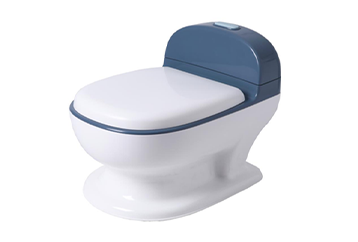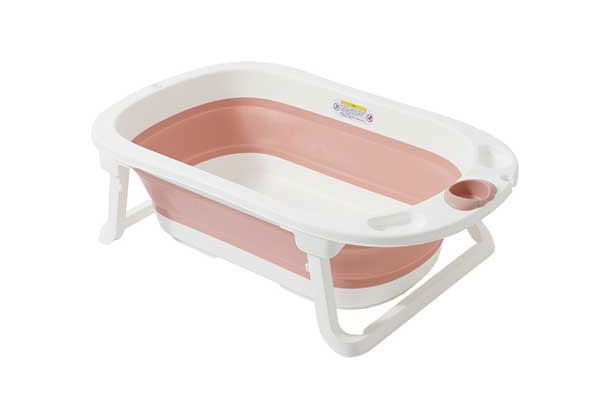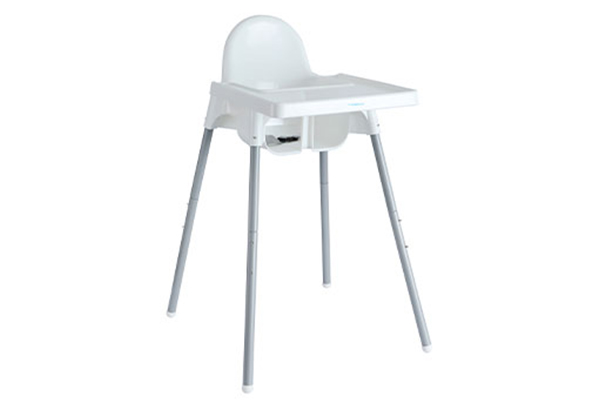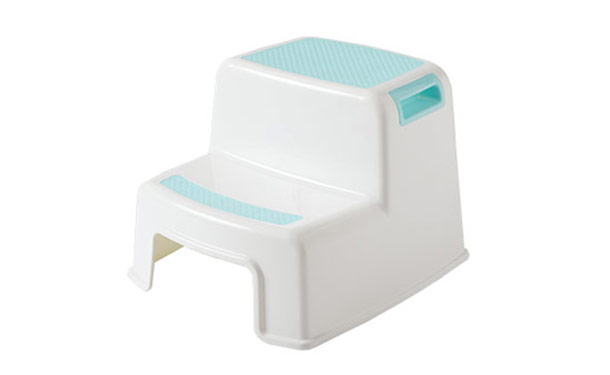 Feeding & Health
Feeding & Health
 Toys & Decor
Toys & Decor
As a parent, taking care of your child becomes your topmost priority, and everything from feeding to teaching and even down to potty training is of utmost importance. One tool that has been gaining popularity in recent times is the mini potty. While there are quite a few benefits to this compact convenience, it also has its share of drawbacks. Let's discuss the pros and cons of using a mini potty for your child's diaper-free journey.
The mini potty in its small and stylish design offers a host of benefits that make it a staple in modern parenting. The compact nature of a mini potty is its most attractive feature. Its easy-to-store quality makes it a hit among parents residing in apartments or houses with limited space. Perfectly sized for the little ones, it doesn't appear intimidating or daunting to them as a standard-sized toilet might.
Another advantage on the pro side is portability. The mini potty is light and can easily be transported to a friend's house, on vacations or even on road trips, which helps maintain potty training consistency. Combined with its easy-to-clean design, these practical attributes make the mini potty a useful option for parents.
The infant potty training toilet's design is concentrated on being child-friendly. It encourages independence in the child, knowing they have a place that's specifically designed for them, enabling them to manage their potty needs with minimal supervision. They tend to view it as their piece of adulthood, making them excited about the potty training process, and eventually making the transition to a regular toilet less intimidating.
Despite its convenience and user-friendliness, the mini potty is not without its flaws. The most evident disadvantage is that eventually, you'll need to transition your child to a regular-sized toilet. This transition is sometimes complex and can disrupt the consistency, as a child may have grown comfortable with their mini-potty, causing resistance when moving on to the bigger toilet.
Moreover, a mini potty may not be practical for all situations. It lacks the inbuilt plumbing of a standard toilet, which means you need to empty and clean it after every use. For parents with multiple children or busy schedules, cleaning the mini potty repeatedly may become a cumbersome task.
Lastly, while the small size of the mini potty is practical, it can also be limiting. The mini potty is designed to be ergonomically friendly for children aged between 18 to 36 months. Once your child exceeds this age or size range, they will outgrow the mini potty, thereby requiring a transition earlier than one would prefer.
Like any other tool or product geared towards child-care, the mini potty too, has its share of pros and cons. While the convenience, portability and child-friendly design make it a worthy addition to a parent's tool-kit, the cleaning requirements and eventual transition may pose a few challenges.
When deciding the best approach for you and your child, consider the specific needs, lifestyle, and temperament of your child. Potty training is a significant milestone in a child's life, and having a tool like a mini potty could make this journey a little smoother. Be patient, stay positive, and remember, every child transitions at their own pace. Bumps along the way like resistance to change or minor accidents are completely normal. With time and the right support, your child will surely master the art of potty training.
 How to Properly Train Your Baby to Use a Potty Training Stairs?June 14, 2024Babies can begin potty training between the ages of one and a half to three years old. Every baby's development is different, so there's no specific time to start training. Don't rush the ...view
How to Properly Train Your Baby to Use a Potty Training Stairs?June 14, 2024Babies can begin potty training between the ages of one and a half to three years old. Every baby's development is different, so there's no specific time to start training. Don't rush the ...view Babyhood Duck Potty Chair: Cultivating Good Toilet Habits for BabiesJune 14, 2024For families with young children, choosing the right children's toilet seat is a very important task. This can not only help children better adapt to the adult world's way of using the toilet ...view
Babyhood Duck Potty Chair: Cultivating Good Toilet Habits for BabiesJune 14, 2024For families with young children, choosing the right children's toilet seat is a very important task. This can not only help children better adapt to the adult world's way of using the toilet ...view Babyhood Folding Infant Bathtub Mainly Uses TPE+PP MaterialsJuly 9, 2024In the field of baby care products, Zhejiang Babyhood Baby Products Co., Ltd. has always been at the forefront of innovation, dedicated to bringing a safer, more comfortable bathing experience to babi...view
Babyhood Folding Infant Bathtub Mainly Uses TPE+PP MaterialsJuly 9, 2024In the field of baby care products, Zhejiang Babyhood Baby Products Co., Ltd. has always been at the forefront of innovation, dedicated to bringing a safer, more comfortable bathing experience to babi...view Monster Potty: Non-slip and Waterproof Splash CompanionApril 30, 2024Every detail of your baby's journey is a sign of how much we care for him or her. When babies take their first steps towards toilet independence, choosing a potty that is both safe and fun is cruc...view
Monster Potty: Non-slip and Waterproof Splash CompanionApril 30, 2024Every detail of your baby's journey is a sign of how much we care for him or her. When babies take their first steps towards toilet independence, choosing a potty that is both safe and fun is cruc...view_400x400.jpg) Fashionable Beginnings: Stylish Baby Clothes Hangers for Trendy TotsDecember 18, 2023Welcoming a new addition to the family brings with it the joy of choosing adorable outfits for your little one. Elevating this experience is the often-overlooked but essential accessory—the baby clot...view
Fashionable Beginnings: Stylish Baby Clothes Hangers for Trendy TotsDecember 18, 2023Welcoming a new addition to the family brings with it the joy of choosing adorable outfits for your little one. Elevating this experience is the often-overlooked but essential accessory—the baby clot...view Mini Toilet for Potty Training That Babies Can't RefuseJuly 9, 2024In the milestones of a baby's growth, learning to use the toilet independently is undoubtedly a crucial step. When mothers gather and talk about their children's toilet training experiences, i...view
Mini Toilet for Potty Training That Babies Can't RefuseJuly 9, 2024In the milestones of a baby's growth, learning to use the toilet independently is undoubtedly a crucial step. When mothers gather and talk about their children's toilet training experiences, i...view



